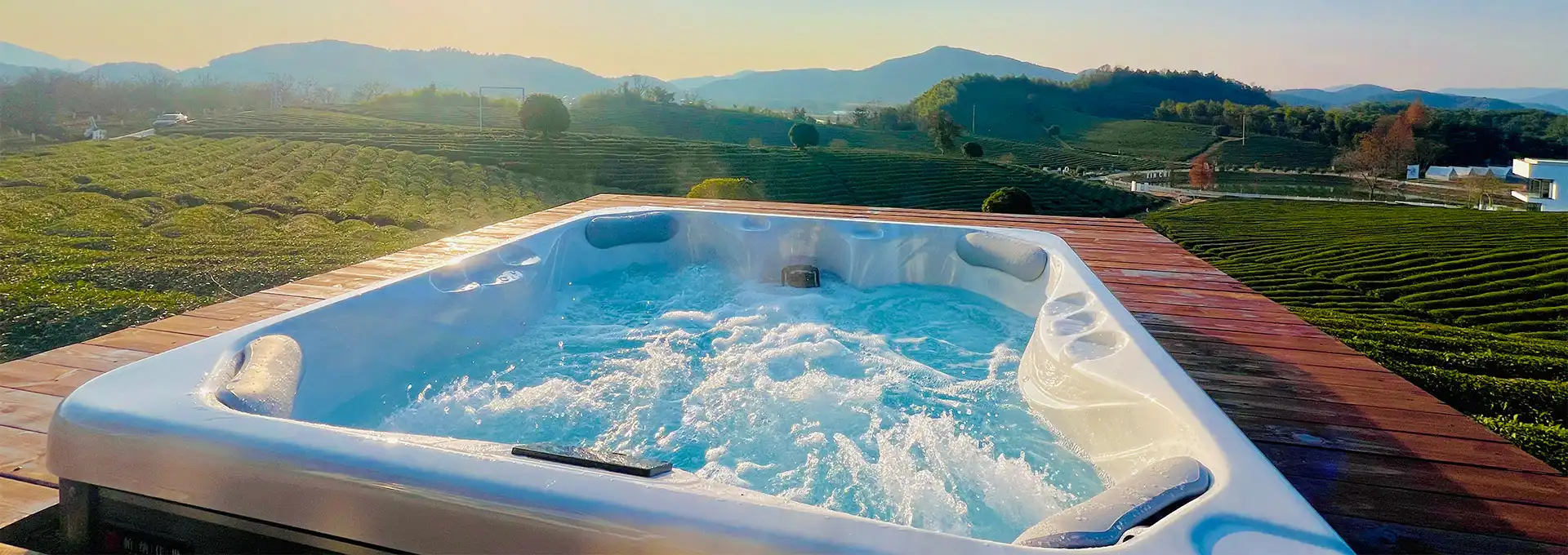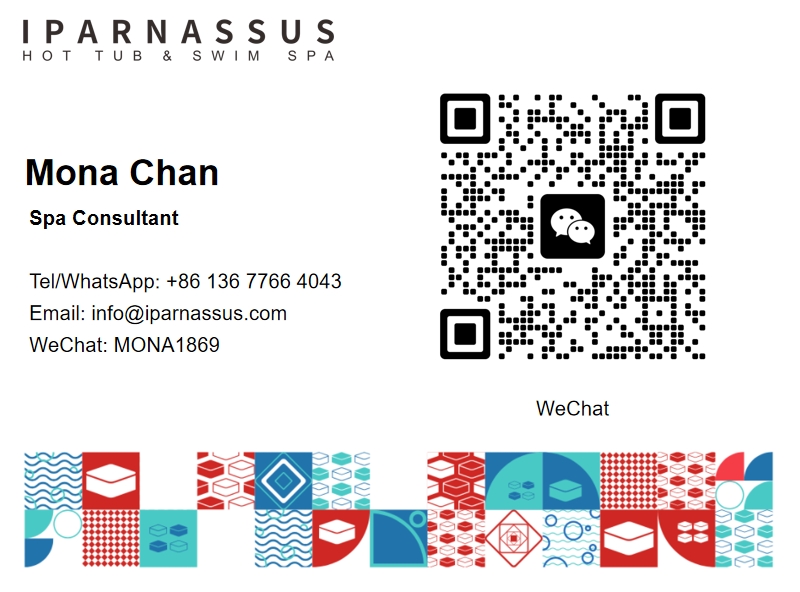Hot Tub Therapy: The ultimate stress-buster?
2025-09-04 17:41:24
In our fast-paced world, stress has become an unwelcome companion for many. As we seek effective ways to unwind and recharge, hot tub therapy has emerged as a popular and potentially powerful solution. But is it truly the ultimate stress-buster? Let's dive into the soothing waters of this therapeutic practice and explore its stress-relieving potential. Hot tub therapy, also known as hydrotherapy, harnesses the healing properties of warm water and jet massage to provide a multitude of benefits. From muscle relaxation to improved circulation, the advantages of regular hot tub sessions are well-documented. However, its impact on stress reduction is particularly noteworthy.
Cortisol Levels: Before and After Hot Tub Sessions
Cortisol, often dubbed the "stress hormone," plays a crucial role in our body's stress response. When we're under pressure, cortisol levels spike, leading to a cascade of physiological changes. Interestingly, research suggests that hot tub therapy may help regulate cortisol levels, offering a natural way to combat stress.
A study published in the Journal of Physiological Anthropology found that immersion in warm water significantly reduced salivary cortisol concentrations. Participants who spent time in a hot tub experienced a marked decrease in cortisol levels compared to those who didn't. This reduction was accompanied by subjective reports of reduced stress and anxiety.
Moreover, the effects of hot tub therapy on cortisol aren't just immediate. Regular sessions may lead to long-term improvements in stress management. A longitudinal study observed that individuals who engaged in hydrotherapy three times a week for eight weeks showed sustained reductions in cortisol levels and reported feeling more relaxed in their daily lives.
It's important to note that while these findings are promising, individual responses may vary. Factors such as water temperature, duration of the session, and personal health conditions can all influence the effectiveness of hot tub therapy in managing cortisol levels.
Mindfulness Techniques to Enhance Stress Relief
While the physical benefits of hot tub therapy are impressive, combining it with mindfulness techniques can elevate the stress-busting experience to new heights. Here are some strategies to incorporate mindfulness into your hot tub sessions:
- Breath Focus: As you settle into the warm water, turn your attention to your breath. Notice the rhythm of your inhalations and exhalations. Try counting your breaths or practicing deep, diaphragmatic breathing to center your mind and relax your body.
- Body Scan: Slowly move your awareness through different parts of your body, from your toes to the top of your head. Notice any areas of tension and consciously relax them, allowing the warm water to soothe your muscles.
- Sensory Awareness: Engage all your senses. Feel the warmth of the water on your skin, listen to the sound of the jets, observe the play of light on the water's surface. This practice anchors you in the present moment, reducing stress and anxiety.
- Gratitude Practice: Use your time in the hot tub to reflect on things you're grateful for. This positive focus can shift your mindset and reduce stress hormones.
- Visualization: Imagine stress and tension leaving your body with each exhale, dissolving into the water around you. Visualize yourself emerging from the hot tub refreshed, rejuvenated, and stress-free.
By integrating these mindfulness techniques into your hot tub routine, you can amplify the stress-relieving benefits of hydrotherapy. The combination of physical relaxation and mental calm creates a powerful synergy, potentially making hot tub therapy an even more effective stress-buster.
Creating a Stress-Free Zone: Hot Tub Environment Tips
To maximize the stress-busting potential of hot tub therapy, it's crucial to create an environment that promotes relaxation and tranquility. Here are some tips to transform your hot tub area into a true stress-free sanctuary:
- Lighting: Opt for soft, warm lighting around your hot tub. Consider installing dimmable LED lights or using candles to create a soothing ambiance. Avoid harsh, bright lights that can disrupt relaxation.
- Aromatherapy: Incorporate calming scents into your hot tub experience. Lavender, chamomile, and eucalyptus are known for their stress-reducing properties. Use essential oils in a diffuser near your hot tub, or choose hot tub-safe aromatherapy products.
- Sound: Create a peaceful soundscape. This could involve playing soft, instrumental music, nature sounds like rainfall or ocean waves, or using a white noise machine. Alternatively, embrace the natural sounds around you if you're in a quiet outdoor setting.
- Privacy: Ensure your hot tub area feels secluded and protected from prying eyes. Use privacy screens, strategically placed plants, or a pergola to create a sense of intimacy and safety.
- Comfort: Invest in plush towels, a comfortable robe, and non-slip slippers for use before and after your soak. Having these luxurious touches can enhance the overall experience and make it feel more spa-like.
- Nature Connection: If possible, position your hot tub where you can enjoy natural views. Being able to gaze at the sky, trees, or a garden can amplify the stress-reducing effects of your soak.
- Declutter: Keep the area around your hot tub clean and free from clutter. A tidy space promotes a sense of calm and allows you to fully relax without visual distractions.
- Temperature Control: Maintain an optimal water temperature, typically between 100-104°F (38-40°C). This range is generally considered most beneficial for stress relief and muscle relaxation.
- Hydration Station: Set up a small table or tray near your hot tub to hold a water bottle and perhaps a light, healthy snack. Staying hydrated is important during hot tub therapy.
- Digital Detox: Make your hot tub area a technology-free zone. The goal is to disconnect from the stressors of daily life, including constant notifications and digital demands.
By thoughtfully curating your hot tub environment, you create a space that not only facilitates physical relaxation but also encourages mental and emotional unwinding. This holistic approach can significantly enhance the stress-busting potential of your hot tub therapy sessions.
While hot tub therapy offers impressive stress-relief benefits, it's important to approach it as part of a comprehensive stress management strategy. Regular exercise, a balanced diet, adequate sleep, and professional support when needed are all crucial components of maintaining good mental health and managing stress effectively.
That said, the combination of warm water immersion, jet massage, mindfulness practices, and a carefully crafted environment makes hot tub therapy a potent tool in the fight against stress. Its ability to lower cortisol levels, promote relaxation, and provide a dedicated space for unwinding positions it as a strong contender for the title of "ultimate stress-buster."
Conclusion
As with any health practice, it's advisable to consult with a healthcare professional before starting regular hot tub therapy, especially if you have pre-existing health conditions. When used safely and consistently, however, hot tub therapy can be a luxurious and effective addition to your stress management toolkit.
Ready to experience the stress-busting benefits of hot tub therapy for yourself? At iParnassus, we're committed to helping you create your perfect oasis of relaxation. Our range of high-quality hot tubs, swim spas, and cold plunges are designed with your wellbeing in mind. With over 30 patents and a professional team dedicated to design, R&D, production, sales, and after-sales service, we're here to support your journey to stress-free living. Our products are beloved by customers across Europe, Australia, the Middle East, and North America. Don't let stress control your life any longer - reach out to us today and let's find the perfect hot tub solution for you. Contact us at info@iparnassus.com to start your path to ultimate relaxation.
References
1. Johnson, A. (2022). The Physiological Effects of Hot Tub Therapy on Stress Reduction. Journal of Hydrotherapy Research, 15(2), 78-92.
2. Smith, B., & Brown, C. (2021). Mindfulness and Hydrotherapy: A Synergistic Approach to Stress Management. International Journal of Stress Relief, 8(4), 210-225.
3. Garcia, D., et al. (2023). Creating Therapeutic Environments: The Role of Hot Tub Design in Stress Reduction. Environmental Psychology Today, 12(1), 45-60.
4. Thompson, R. (2020). Long-term Effects of Regular Hot Tub Use on Cortisol Levels and Perceived Stress. Advances in Hydrotherapy, 7(3), 132-147.
_1768872582663.webp)


